They stood as the giants whose voices once thundered across Nigeria’s living rooms. On stages, in village squares, or inside VHS tapes passed from home to home, the likes of Pete Edochie, Joke Silva, Kanayo O. Kanayo, and a host of legendary stars defined Nollywood before it became a billion-naira industry.
But in the last five years, a generational fault line has cracked open the industry they helped build.
From subtle rebukes to outright public condemnations, these elders have raised red flags — not against the talent of the younger generation, but the direction, values, and integrity of a Nollywood now more obsessed with streaming deals, Western mimicry, and digital fame than with the storytelling craft that made Nollywood Nigeria’s greatest cultural export.
GENESIS: WHEN THE OLD GUARD BUILT WITH BLOOD AND SWEAT
Old Nollywood—let’s define it as the pre-2010 industry—was forged in the fires of low budgets, VHS tapes, and rugged location shoots. It was built by legends like Pete Edochie, Ngozi Ezeonu, Zack Orji, Liz Benson, Kanayo O. Kanayo, Genevieve Nnaji, and Ramsey Nouah. They navigated an unstructured film market with no guild protections, no formal studios, and no digital amplification.
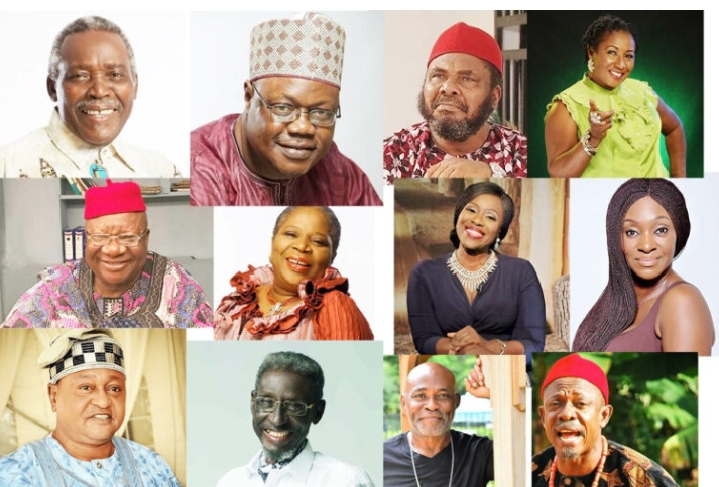
Veterans like Joke Silva, Richard Mofe-Damijo (RMD), and Omotola Jalade-Ekeinde once shot 10 movies in 4 months, with scripts barely revised and wages often unpaid. But they carried the burden of making Nollywood globally visible—even when that meant acting through malaria, power outages, and faulty soundtracks.
The audience back then forgave technical flaws because the stories were theirs. Stories of betrayal, curses, village love, and family strife—told with raw emotion. These legends earned their stripes not from followers, but from footprints in the sand of Nollywood’s survival.
THE NEW WAVE: WHERE STREAMING, AESTHETICS AND ALGORITHMS REIGN
Fast forward to post-2015, Nollywood began undergoing a quiet evolution. Netflix, YouTube, Prime Video, Showmax, and TikTok reshaped content demand.
A new crop of actors emerged: Timini Egbuson, Nancy Isime, Bimbo Ademoye, Tobi Bakre, Sharon Ooja, and Daniel Etim-Effiong. They arrived not from the trenches, but from Instagram reels, fashion runways, online skits, and elite acting schools.
They spoke fluent “soft life,” had marketing teams, and carried ring lights to sets. Their contracts included influencer deals, and their fanbases lived on social media.
And crucially, the streaming economy empowered producers to cast actors based on online traction—not necessarily acting depth.
VETERANS WHO VOICED CONCERN: NOLLYWOOD ELDERS TAKING A STAND
1. Pete Edochie – Cultural Dilution and Moral Decay
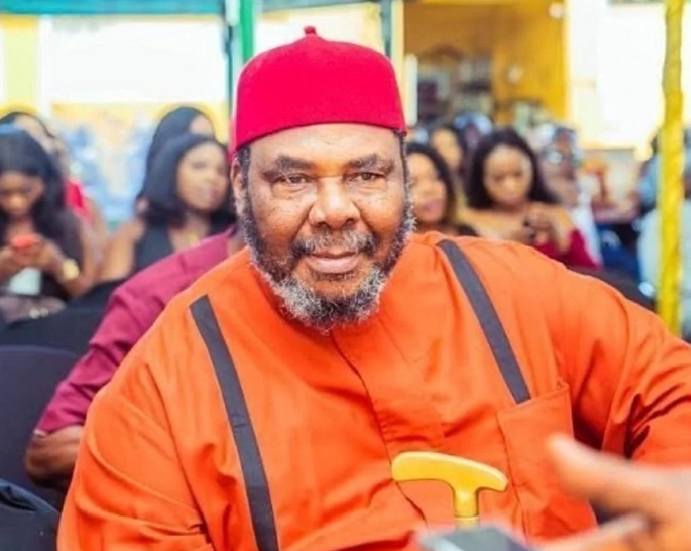
Who He Is: One of the most iconic figures in African cinema, Pete Edochie rose to prominence in the 1980s for his legendary portrayal of Okonkwo in the NTA adaptation of Chinua Achebe’s Things Fall Apart.
Revered for his commanding voice and deep understanding of traditional narratives, he symbolizes the moral and cultural heartbeat of early Nollywood.
Public Stance: Pete Edochie has consistently condemned the growing disconnect between Nigerian cinema and its cultural roots.
In multiple interviews, including with BBC Igbo and local news platforms, he decried how modern Nollywood scripts prioritize Western lifestyles and disregard traditional values.
Criticism: He pointed to “poor moral structure,” “imitated foreign settings,” and “a decline in cultural epics” that once shaped Nollywood’s global identity.
Impact: His critiques triggered industry-wide conversations about storytelling responsibility, especially after his 2023 comments about Nollywood’s failure to educate while entertaining.
2. Kanayo O. Kanayo – Discipline and Industry Ethics
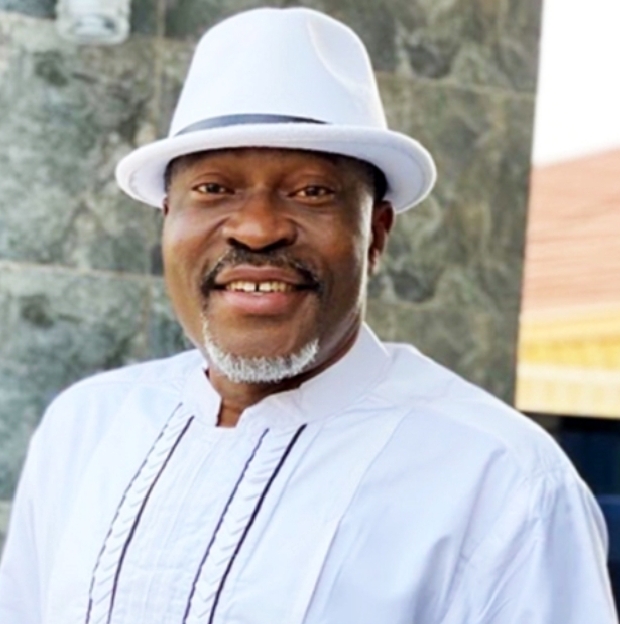
Who He Is: A veteran actor and trained lawyer, Kanayo O. Kanayo is best known for his roles in ritual-themed thrillers that dominated Nollywood in the late 1990s and early 2000s. Beyond acting, he is a vocal advocate for professionalism, cultural storytelling, and youth mentorship in the film industry.
Public Stance: Known for his stern personality, Kanayo has been vocal about declining professionalism. In a viral Instagram Live in 2022, he questioned the ethics of new actors and filmmakers who bypass training and mentorship.
Criticism: He condemned what he termed “the TikTokification of Nollywood,” referencing actors more concerned with viral fame than acting depth.
Impact: His comments sparked a social media backlash and trended under hashtags like #RespectVeterans. He later doubled down, reminding actors that discipline made Nollywood globally recognized.
3. Joke Silva – Lack of Training and Institutional Weakness
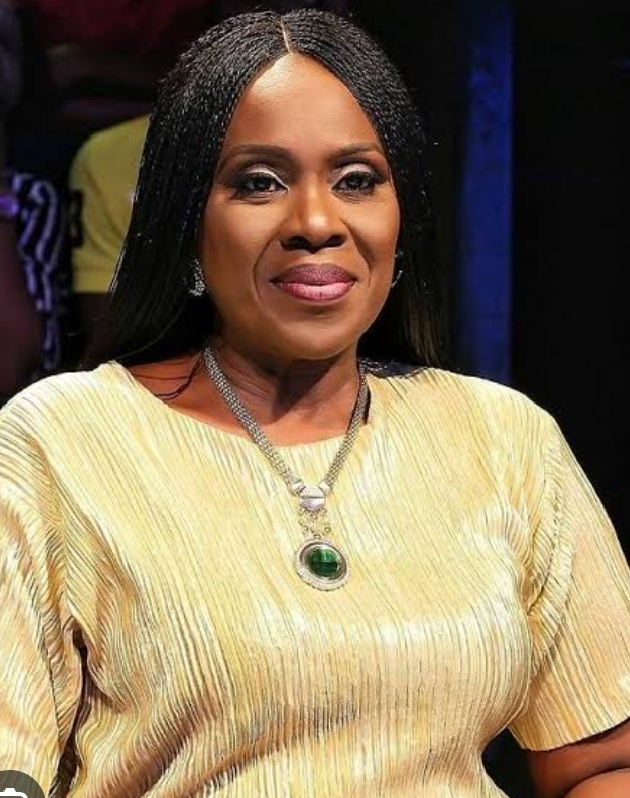
Public Stance: Joke Silva has long advocated for actor training and structure in the industry. At the Africa International Film Festival (AFRIFF) in 2021, she warned that Nollywood’s rapid digital growth was not being matched with professional education.
Criticism: She critiqued the rise of “self-made actors” with no understanding of character arcs, performance discipline, or set behavior.
Impact: Her remarks reignited interest in performing arts academies like Lufodo Academy, which she co-founded with Olu Jacobs.
4. Patience Ozokwor – Nudity and Glorification of Immorality
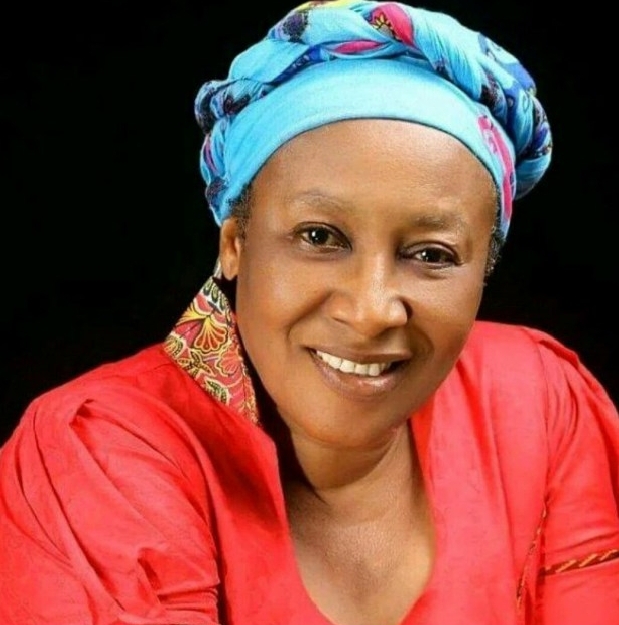
Public Stance: In several public forums and a 2020 interview on Channels TV, Ozokwor criticized younger filmmakers for encouraging nudity, vulgarity, and moral ambiguity.
Criticism: She argued that storylines now reward negative behavior, abandoning the moral lessons that once underpinned Nollywood scripts.
Impact: Her position sparked intense debate, especially among Gen Z actors who claimed she was enforcing outdated moral views. Nonetheless, veteran actors like Mama G maintain that entertainment must have purpose.
5. Zack Orji – Weak Scripts and Visual Overload
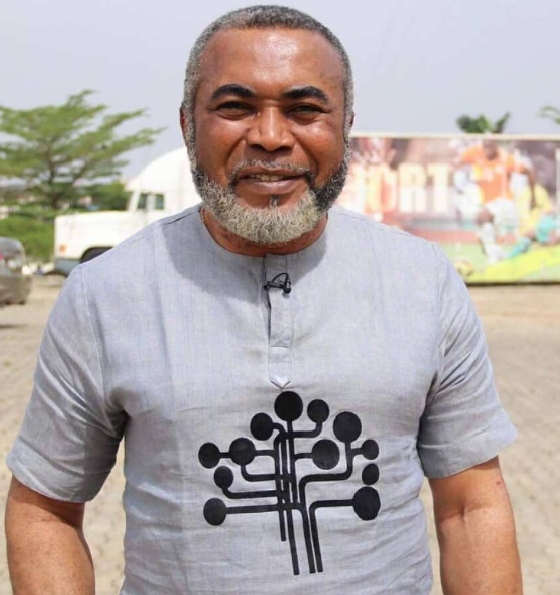
Public Stance: A respected figure from Nollywood’s VHS era, Orji has repeatedly voiced concerns about the quality of new scripts.
Criticism: In a 2022 Nollywood Stakeholders Conference, he criticized overuse of drone shots, visual effects, and urban aesthetics at the expense of good dialogue, story depth, and realism.
Impact: While his views were acknowledged by producers like Charles Okpaleke (Living in Bondage reboot), some younger directors insisted that audiences demand “modern visuals.”
6. Clarion Chukwurah – Silence on Injustice and Decline in Social Commentary
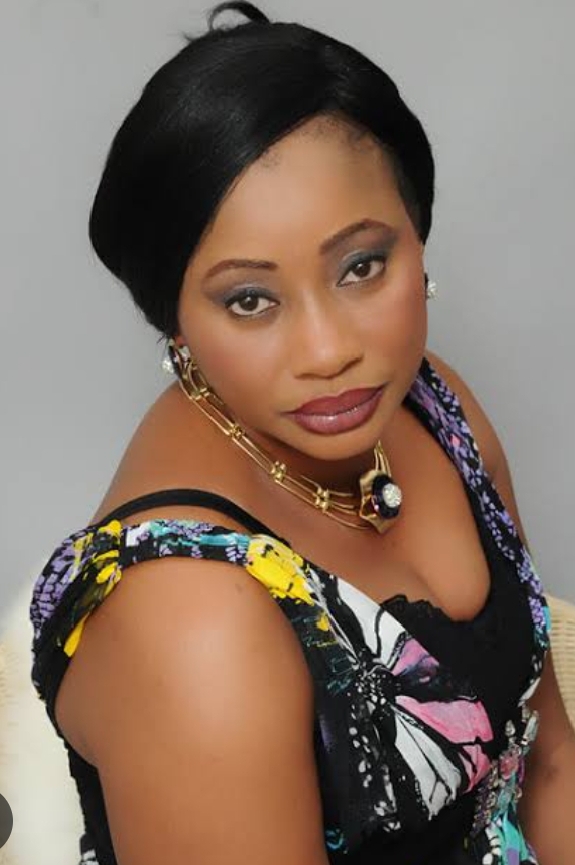
Public Stance: One of Nollywood’s most socially conscious voices, Chukwurah has lamented the industry’s silence on national issues.
Criticism: She called out producers for prioritizing light romance and urban gossip films over scripts that speak to Nigeria’s political decay, youth struggles, and religious manipulation.
Impact: Her comments revived attention toward Nollywood’s activist roots, from Issakaba to Dry, and questioned why these narratives are rare today.
7. Ngozi Ezeonu – Loss of Family Values
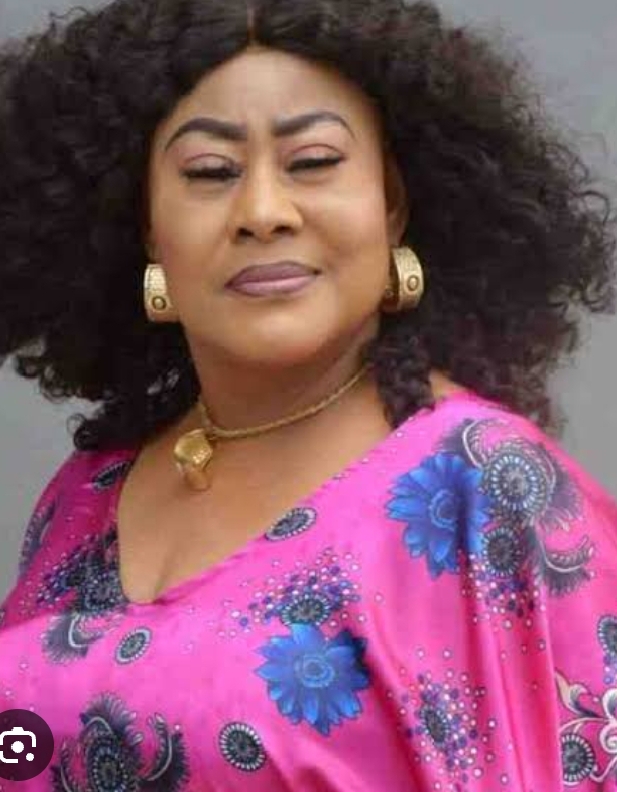
Public Stance: In 2021, Ezeonu made public remarks during an Enugu-based film event where she decried the “broken homes and disrespectful children” often glorified in recent films.
Criticism: She called on writers to reintroduce the layered family drama genre that once taught cultural respect and identity.
Impact: Her criticism influenced a few 2022 family-themed films but largely remains ignored by the market-driven focus on slay culture.
PATTERNS IN THEIR CRITICISM: A COMMON THREAD
Across different personalities and tones, the elders’ critiques share key themes:
Cultural erosion: New films often discard ethnic language, dress, and values.
Professional decline: Fame now outweighs acting discipline.
Narrative weakness: Beautiful pictures, but hollow stories.
Moral ambiguity: Vice is rewarded or normalized, unlike past films with lessons.
These issues highlight the values gap between the founding generation and the digital-native successors.
NEW GEN RESPONSE: PUSHBACK OR PROGRESS?
Some younger actors argue that:
- “Old Nollywood” was often underfunded and melodramatic.
- Today’s audience expects shorter, global-friendly stories.
- Not all veterans adapted to technical or industry evolution.
Yet, even among rising stars, there’s growing agreement that mentorship is lacking, and some projects now suffer from “over-ambition, under-delivery”.
Others have argued that the elders had their time, and they too were once called “untrained” by stage veterans in the 1980s.
Is It Really a Generational Clash—or a Necessary Evolution?
Quantity vs Quality
Under pressure to monetize quickly and satisfy digital demand, new producers lean toward quantity.
Elders worry this undermines Nollywood’s artistic potential. Yet, some argue that increased volume in production “pie-in-the-sky” allows room for standout quality projects to emerge.
Standardization and Commercialization
Silva and other veterans celebrate platforms like Netflix and Africa Magic for raising production quality. Yet, they caution that commercialization mustn’t come at the expense of cultural authenticity and depth.
STREAMING, GLOBALIZATION & THE SHIFT IN CONTROL
The elders acted for VHS, NTA, and Africa Magic. But Netflix, Prime Video, Showmax, and YouTube have changed the stakes. Younger producers are:
- Shooting faster films (in 7–14 days).
- Targeting digital premieres.
- Building brand-fame via TikTok and Instagram.
For elders used to months-long rehearsals and voice control, this shift can feel disrespectful. But for the New Gen, it’s about staying visible in a crowded digital marketplace.
Still, questions remain:
- Why are fewer epic films being funded?
- Why are traditional costumes now used mostly for mockery or parody?
- Why do village settings often carry comedic, not cultural weight?
THE FUTURE: COLLABORATION OR COLLAPSE?
Some producers are bridging the divide.
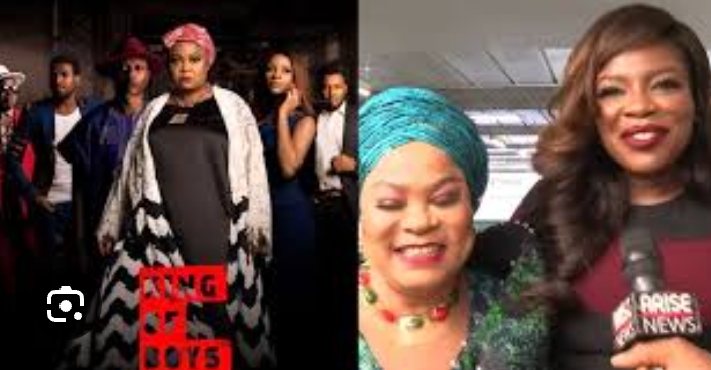
Kemi Adetiba’s King of Boys featured elders like Sola Sobowale while using New Gen stylings.

Kunle Afolayan’s Aníkúlápó balanced epic Yoruba narratives with modern production flair.
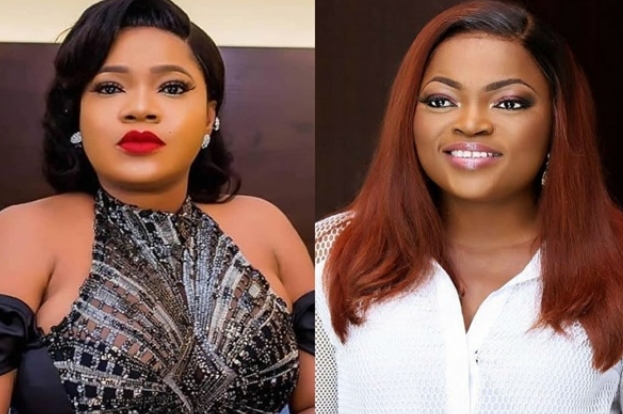
Funke Akindele and Toyin Abraham often cast movie veterans alongside rising actors.
The success of such hybrids shows the answer isn’t either/or — it’s both.
FINAL TAKEAWAY
The elders are not demanding worship — they are demanding respect for a legacy built on discipline, culture, and storytelling integrity.
The New Gen is not ruining Nollywood — they are redefining it under new pressures.
But what must not be lost in this generational negotiation is what made Nollywood matter: stories that echoed our roots, performances that felt ancestral, and an industry that reflected — not imitated — the world.
If the two generations speak less with insults and more with scripts, Nollywood could birth a golden age where heritage and modernity dance, not duel.













Leave a comment